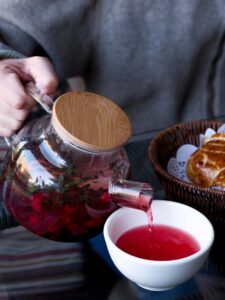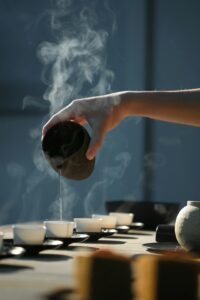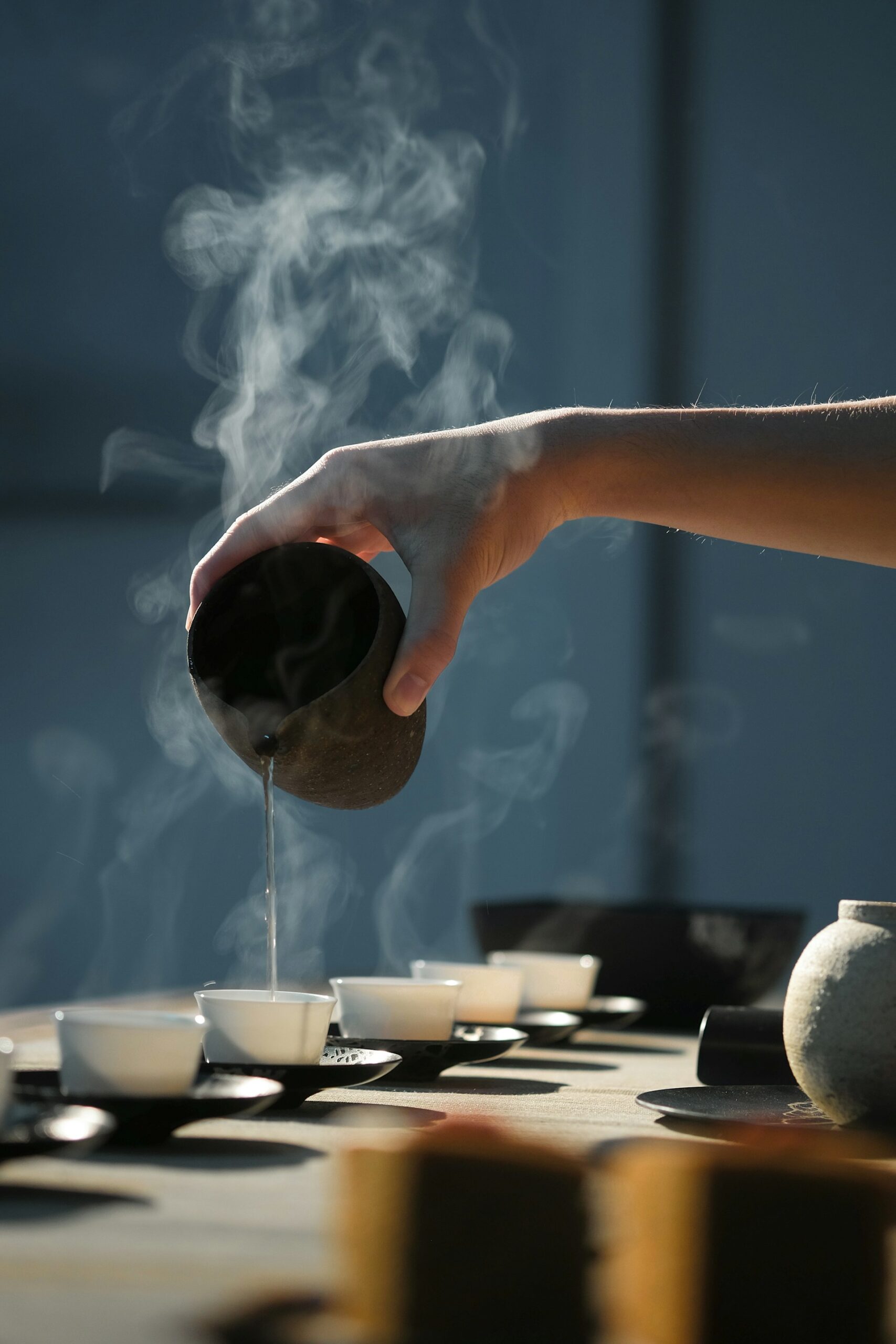3 Herbal Teas To Good Health In The New Year
Good health is about maintaining your fitness levels at the optimum level so that the body can respond to your needs while you take care of its requirements. I have begun to get hooked on the idea of health additives, especially different traditional herbal teas. Many of these teas present a tastier and healthier alternative to common beverages. With use, I have begun to find truth in the claims about their health-promoting properties. However, it all started with a cup of hibiscus tea that my friend served as a pick-me-up after my bout of flu.
Hibiscus Tea
Hibiscus tea is a tart-flavored, pink-red color beverage made from the colorful hibiscus flowers and can be enjoyed hot or iced. A combination of Tulsi leaf (Indian Basil), Cinnamon, and Tea leaf adds to the goodness of hibiscus and the overall benefits of the beverage. Hibiscus has antiviral properties that studies have shown to be highly effective against strains of the bird flu. Some studies have found hibiscus tea to positively affect blood lipid levels and high blood pressure. Another study found it significantly decreases oxidative stress when consumed for six weeks.
Cinnamon contains polyphenol antioxidants that have anti-inflammatory effects and remove some key risk factors for heart disease, including cholesterol, triglycerides, and blood pressure. Cinnamon present in hibiscus tea is effective in the context of insulin, and fasting blood sugar levels and possesses anti-diabetic effects. It is also useful against cancer and has antifungal and antibacterial properties besides helping fight HIV-1. Tea-leaf rounds off all these benefits as a weight loss agent and bone protector.
Of course, it helps if you check with your doctor before you start on this hibiscus tea regimen and once you do, you are on to a good thing for life.

Mulberry Tea
This is a newer entrant in my kitchen and am just about getting used to the bitter and neutral sweet taste of the brew. What I like about mulberry tea is the smoothness and the health benefits that only get enhanced when we use it in combination with guava and black tea leaves. Mulberry tea is a good source of vitamin K, vitamin B2, vitamin E, copper, and magnesium.
In terms of specific benefits, mulberry tea contains antioxidants that can inhibit bacterial growth, and prevent cancer and cellular damage while also being known to lower blood glucose and cholesterol levels and inhibit inflammation. The drink is useful to those who are trying to lose weight and in preventing atherosclerosis. It has a huge role in vision care, diarrhea treatment, healing colds, and cough, reducing acne, and improving skin texture.
Guava tea leaves bring some striking benefits to mulberry tea such as lowering blood sugar levels, eliminating the flu virus, lowering cholesterol levels, easing diarrhea, managing symptoms of dengue fever, and calming menstrual symptoms.
Moringa Tea
Another healthy tea that I have tried out to good effect is moringa tea. It has a mild flavor and a slightly earthy taste that I found easy to get used to. It has a mild flavor and a slightly earthy taste that I found easy to get used to.
Moringa, an acknowledged superfood, contains Vitamin A, potassium, Vitamin B6, Vitamin C, magnesium, beta carotene, and three times as much iron as spinach, and is a good source of calcium. It has antimicrobial and antifungal properties while its antioxidants can moderate inflammation. Moringa tea has a stabilizing effect on blood pressure and is known to lower cholesterol.
This tea lowers blood sugar, contains an anti-cancer compound, and regulates thyroid hormones while being beneficial for skin, and hair and in the treatment of nausea, indigestion, and diarrhea. That is quite a list of benefits and we haven’t even talked about moringa tea’s role in boosting excretory functions, weight loss, nourishment, and as an energy booster.
The presence of mint leaves and licorice in moringa tea makes it a ‘super tea’ for the benefits that they bring along. Mint leaves contain the highest amount of antioxidants than any other herb and are useful in treating asthma and respiratory, aiding the process of digestion and weight loss.

Mint’s role in oral hygiene is well known, but its efficacy in allergy prevention, liver strength enhancement, as a brain stimulant, and depression treatment is much less known and adds to the appeal of moringa tea. Mint’s role in aiding breastfeeding, preventing cancer,r and maintaining healthy skin is not too well known either.
Licorice is the surprise element for me in Moringa tea, acting as it does as a soothing agent and expectorant. This soothing effect helps in reducing upper-respiratory symptoms, such as sore throat and coughing. Licorice additionally works as a weight loss aid and takes care of ulcer symptoms, canker sores, and digestive problems, such as acid reflux and indigestion.














Post Comment